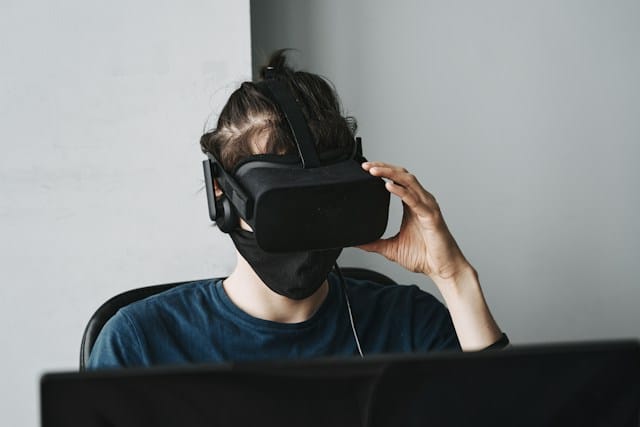As we plunge deeper into the age of technology, the rise of artificial intelligence (AI) and robotics promises to reshape our lives in profound ways. One domain where these advancements are making a significant impact is in eldercare. Amidst a growing elderly population and increasing demands for eldercare, robots powered by artificial intelligence are stepping into the scene, offering innovative solutions and support for older adults and caregivers alike.
The Growing Need for Robotic Assistance in Eldercare
In many nations, the demographic shift towards an older population has led to a surge in demand for eldercare services. This has put immense pressure on healthcare providers and caregivers, who often struggle to meet these demands. This is where AI-powered robots come into play. Offering assistance in a variety of tasks, these robots are proving to be invaluable additions to the eldercare landscape.
Dans le meme genre : What types of images can an image generator create ?
Intelligence robots provide assistance in daily tasks, offer companionship, monitor health, and gather crucial data on the older adults’ health and well-being. They not only alleviate the burden on caregivers but also enhance the quality of life for the elderly, enabling them to maintain their independence and dignity.
How AI-Powered Robots Provide Care and Support
AI-powered robots offer multifaceted support in eldercare. From basic tasks such as pill reminders, to more complex functions such as analyzing data and predicting health issues, these machines have proven their mettle.
Sujet a lire : How can AI assist in disaster preparedness and response?
Despite the complexity of the tasks they perform, the user interface of these robots is intuitive and made to be accessible for older users. Many of these devices use voice recognition software and touch screen panels for easy navigation. Some robots are even equipped with facial recognition technology, allowing them to identify their human companions and adjust their responses accordingly.
Besides assisting with daily tasks, these robots also offer emotional support, providing companionship to those who may be lonely or isolated. With advanced AI capabilities, they can engage in conversations, recognize emotions, and respond in a human-like manner, providing much-needed social interaction for the elderly.
Health Monitoring and Data Analysis
Health monitoring is a critical aspect of eldercare, and AI-powered robots are rising to the task. Equipped with sensors and AI algorithms, these robots can monitor vital signs, physical activity, dietary habits, sleep patterns, and more.
The data collected by the robots is analyzed to identify patterns and potential health risks. For example, changes in movement patterns or daily routines could be early warning signs of health issues. The AI algorithms can alert caregivers or healthcare providers, enabling early intervention and potentially preventing serious health complications.
Moreover, the robots can also provide personalized health advice and recommendations based on the data analysis. This includes reminders for medication, suggestions for physical activities, or dietary advice, all tailored to the individual’s health needs and preferences.
The Role of Robots in Lightening the Load for Caregivers
While the primary users of AI-powered robots are the elderly, caregivers also reap substantial benefits from this technology. Caregiving can be physically and emotionally taxing, with long hours and high levels of stress. Robots can take over routine tasks, freeing up time for caregivers to focus on more complex care needs.
Moreover, the data collected and analyzed by the robots can provide caregivers with valuable insights into the health and well-being of the older adults. This information can guide them in adjusting care plans, managing health risks, and ensuring a better quality of care.
The Future of AI-Powered Robots in Eldercare
The role of AI and robotics in eldercare is only set to expand in the future. With ongoing advancements in AI, machine learning, and robotics, we can expect these robotic caregivers to become even more intelligent, capable, and user-friendly.
While there are ethical and societal issues to consider, such as privacy concerns and the impact on human jobs, the potential benefits of AI-powered robots in eldercare are immense. They offer a promising solution to the growing demand for eldercare services, supporting caregivers and improving the quality of life for older adults.
While they can’t replace human interaction and care, AI-powered robots can provide invaluable support and enhance the overall eldercare experience. As we continue to navigate the uncharted waters of the digital age, it is crucial to embrace and harness the potential of technology as a tool to improve the health and well-being of older adults.
The Integration of AI-Powered Robots in Assisted Living Facilities and Homes
AI-powered robots are not only being put to use in healthcare settings, but they are also being increasingly integrated into assisted living facilities and homes for older adults. These robots are designed to enhance the quality of life for elderly people and provide support in tasks that may become difficult with age.
In assisted living facilities, these robots perform a range of tasks from serving meals to providing reminders for medication. In homes, they assist older adults with daily tasks such as cleaning, cooking, and grocery shopping. They can even help with tasks that require a certain level of physical strength, such as lifting heavy items or helping the elderly move around.
The AI-powered robots also provide emotional support, especially for those who live alone or have limited social interaction. These robots are equipped with advanced AI capabilities that allow them to engage in meaningful conversations, recognize emotions, and respond in a human-like manner. This helps in reducing feelings of loneliness and isolation among the elderly.
The use of AI-powered robots in assisted living facilities and homes also gives older adults a greater sense of independence. With the help of these robots, they can perform tasks on their own without having to depend on human caregivers. This not only enhances their quality of life but also gives them a sense of dignity and self-worth.
The Impact of AI-Powered Robots on Medical Sciences and Healthcare Professionals
The integration of AI-powered robots into eldercare is having a significant impact on medical sciences and healthcare professionals. This technology is changing the way healthcare is delivered, particularly in the context of elderly care.
The health monitoring capabilities of these robots are transforming the field of medical sciences. They can monitor vital signs, track physical activity, record dietary habits, analyze sleep patterns, and more. This wealth of data is then analyzed to identify patterns and potential health risks, enabling early intervention and prevention of serious health complications.
For healthcare professionals, AI-powered robots can be invaluable tools. They provide real-time data and insights into the health and well-being of older adults, helping healthcare professionals make informed decisions about care plans and treatment strategies. This not only improves the quality of care but also makes the healthcare process more efficient.
Conclusion
As we delve deeper into the era of artificial intelligence and robots, it’s clear that AI-powered robots have an integral role in reshaping eldercare. They offer innovative solutions to meet the increasing demand for eldercare services, provide support to older adults and caregivers, and enhance the quality of life for older persons.
The potential of AI-powered robots is immense, from health monitoring to providing emotional support and assistance in daily tasks. As AI, machine learning, and robotics continue to advance, these robots are set to become smarter, more capable, and more user-friendly.
While there are challenges to address, such as privacy issues and the potential impact on human jobs, the benefits of AI-powered robots in eldercare far outweigh the concerns. They present a promising future for eldercare, one where technology is harnessed to improve the health, well-being, and quality of life for older adults.
As the trend of AI-powered robots continues to grow, it’s essential for us to embrace this technology and utilize it to its full potential. The future of eldercare is here, and it’s powered by artificial intelligence and robotics.











